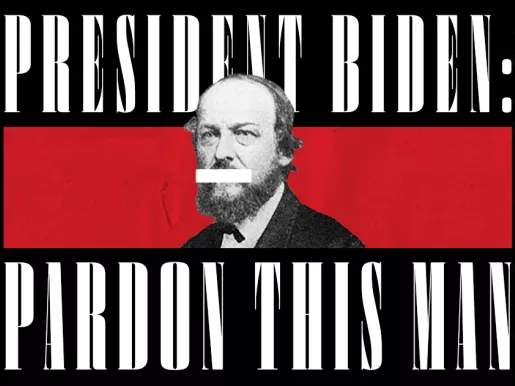Table of Contents
There is never a wrong time to do the right thing

In 1879, newspaper publisher D.M. Bennett was arrested, convicted, and sentenced to 13 months of hard labor in a New York prison for simply mailing a pamphlet.
Prosecutors nailed Bennett for mailing an anti-marriage tract titled “Cupid’s Yokes, or The Binding Forces of Conjugal Life,” which U.S. Postal Inspector Anthony Comstock deemed obscene. The real reason for the conviction was that Comstock targeted Bennett because the publisher had the nerve to campaign for the Comstock Act’s repeal — a law Comstock aggressively lobbied for — which Congress passed to curb the spread of “obscene” materials through the mail.
Bennett championed the values of free speech, intellectual freedom, and the right to challenge conventional wisdom, which are essential to our democracy. And for that, Comstock vindictively and successfully prosecuted him. Bennett's unjust conviction remains on the books today.
But with a swipe of President Biden’s pen, it doesn’t have to be.
Pardoning D.M. Bennett would honor his legacy as a free speech defender and reaffirm our nation's constitutional commitment to our free-speech principles. It is long past time to correct this wrong and acknowledge the unjust treatment of a man who bravely stood for freedom of thought and expression.
The Foundation for Individual Rights and Expression filed a petition on June 17, 2024, calling on President Joe Biden to posthumously pardon D.M. Bennett, one of the Comstock Act’s most prominent victims.
Thanks to developments in constitutional law, the Comstock Act has since become all but a dead letter. Yet today, cases in Texas and the Supreme Court threaten to breathe new life into the Comstock Act, which is still on the books. With a zombie Comstock Act resurgent, the cause for D.M. Bennett's pardon couldn’t be more urgent.
We urge you to join us and send an email to President Biden requesting a pardon for D.M. Bennett. Together, we can ensure that Bennett’s contributions to free expression are rightfully recognized and that his unjust conviction is overturned.

